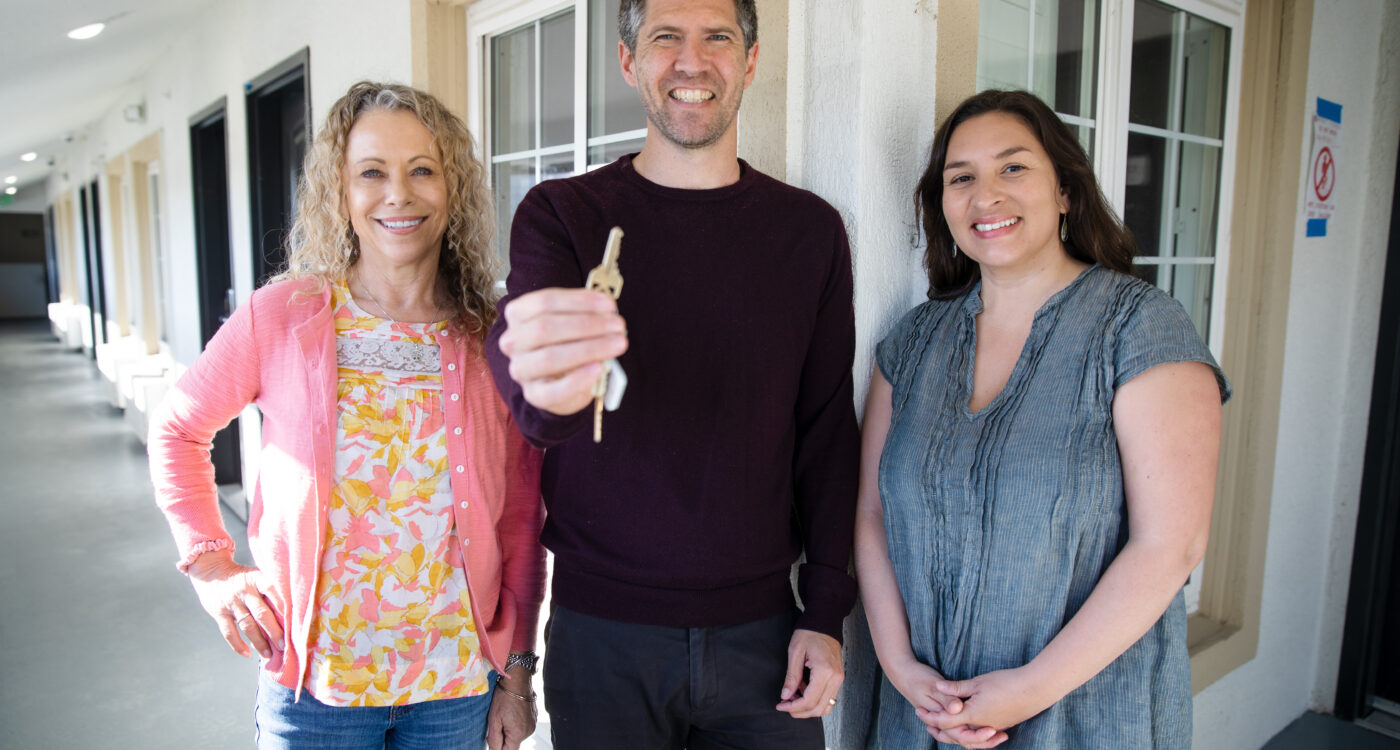We’re so close to big goals this year, standing at the brink of opening two housing programs that will end homelessness for 50 more people. All because of friends like you!
Dear Friends to the End…of Homelessness,
We’re closing in on some big goals this year, standing at the brink of opening two housing opportunities that will end homelessness for 50 more people. All because of friends like you! We’re thinking of friends who fuel our work with financial gifts, friends in Corte Madera and San Rafael who voice support for these projects, friends in city and county offices who work to assure these projects move through the approval process. Together, as friends and neighbors, we’re joining hands to see more people move home for good—off the streets, out of tents, and into their own homes. We feel awe and gratitude for all the partnerships that help create these new leases on life. Thank you! This is all doubly impressive given the lengthy pandemic, resulting in supply chain setbacks, delay and cost escalation. Collectively, we never lost sight of the vision that everyone deserves a place to call home.
That same vision fuels our commitment to JEDI—Justice, Equity, Diversity, and Inclusion—infusing all the work we are called to do in this community. By integrating these principles into our foundation, we level the playing field for our staff, our students, and our program participants. This focused intention results in emerging opportunities for leadership, particularly among people of color. In this issue, you will meet our JEDI training team, who are guiding important and rich discussions with our program staff, generating and furthering core values of inclusion. These courageous and constructive conversations strengthen our commitment to this collective mission.
Witnessing the homecoming of individuals and families who have struggled beyond our imagination is a gift to rejoice and savor! Their struggles are mirrored in the intricate and layered construction of the physical buildings in Corte Madera and San Rafael. We celebrate the whole journey and thank you for joining us along the way!
In gratitude,
Mary Kay Sweeney, Co-Executive Director
Program Offers Space to Connect with Life and Self
A new community for people who have despaired of finding a stable home will bloom this spring in Corte Madera.
The program welcomes 18 people in May, adding a vital option to local housing stock in the first Marin County project accomplished with help from the state’s Project Homekey.
“This fills a void for a vulnerable population that wasn’t going to find market-rate housing and has struggled with complex issues that are exacerbated by housing instability,” says Anna Hurtado, Chief Program Officer for Homeward Bound.
Work began in November on a $2 million renovation plan for the former motel at 1591 Casa Buena Drive. Now complete, the site plans a Community Open House from 1 to 3 p.m. May 6. Residents will arrive in the following weeks.
Tenants will be individuals already known to the countywide “Coordinated Entry” panel that meets weekly to match people without housing to appropriate options. Rather than a segment of that community, the new residents will be a broad group.
“This will be a diverse community in age as well as ethnicity,” says Colin McDonnell, our Director of Housing for Chronically Homeless Adults. “There’s no time limit for residency. Some older folks may stay forever and some younger ones could move elsewhere into their own place after awhile.”
Having their own space comes as a tremendous gift as well as a challenge for people who have experienced homelessness repeatedly or for an extended time, Colin adds.
“Sometimes the biggest issue with housing is people get bored,” he says. “It’s a process to re-engage – with their own priorities and interests, or with caring for themselves. They haven’t had that luxury of space, both in a mental and physical sense.”
Alicia Slavich, Senior Program Coordinator for the community, will connect people with resources for needs like health care or mental health support. She also will coordinate activities from movie nights to holiday events to credit repair workshops for residents.
Rents will be set at one-third of income to be affordable for all tenants. The community will receive a nightly meal prepared by the culinary team at Homeward Bound.
The County of Marin purchased the site in early 2021 using $4.1 million in funds from Project Homekey. For several months, the building provided temporary shelter under the management of Catholic Charities with the requirement to convert the site to permanent supportive housing in 2022.
For the renovation, $1.86 million came from the county and $100,000 from a grant by Tamalpais Pacific. Homeward Bound has worked to raise the last $25,000 to open the doors. If you would like to see the improvements and help the community blossom, please see the opportunities below.
Mill Street rises to bring people home
Where a dirt expanse waited for concrete to be poured in early 2021, a modern building filled with opportunity now reaches four stories toward the sky.
With your help, our new shelter and housing program at 190 Mill Street in San Rafael will open this fall, providing an emergency shelter with 40+ beds and two floors with 32 small apartments for people who have struggled to maintain stable housing. Stay tuned for details of a grand opening event!
We’ve raised 99% of the $19 million needed to complete construction. You can help us down this final stretch with a dollar-for-dollar matching grant! (See the details below.)
“The community collaboration for this project is testimony to the power of working together toward a common vision,” says Mary Kay Sweeney, our Co-Executive Director.
The new shelter replaces a one-story building where Homeward Bound has offered the county’s only year-round emergency shelter since 1986.
Thank you for helping us to raise the roof at Mill Street Center! Your partnership allows us to continue serving people facing a crisis of homelessness for years to come.
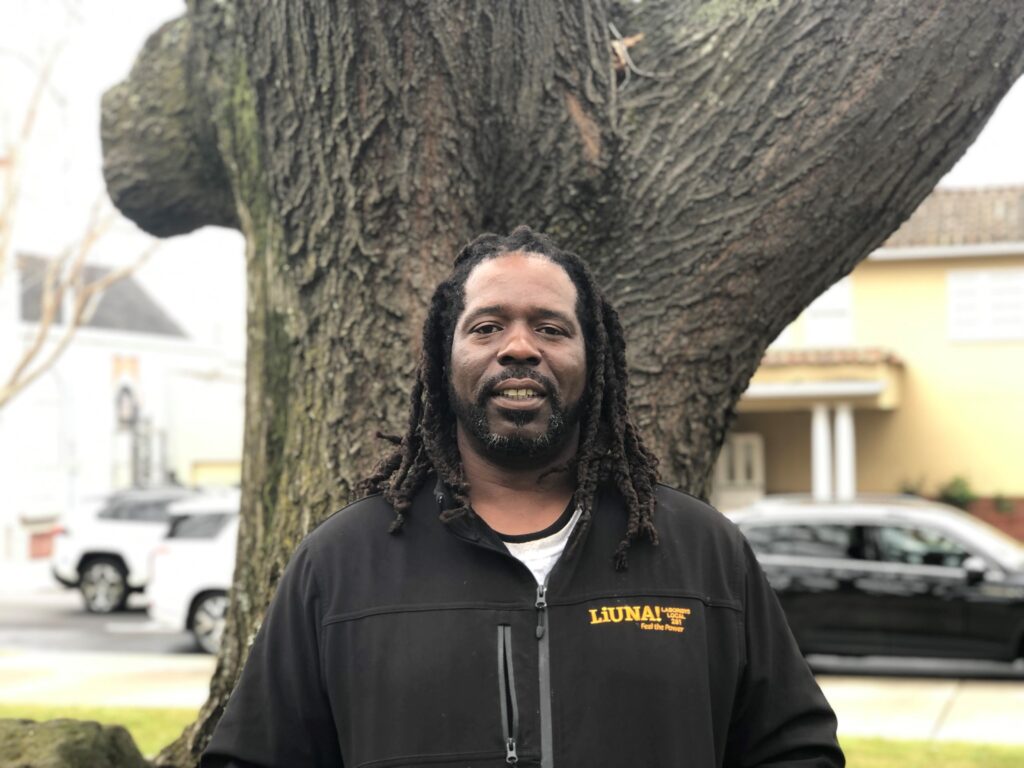
Antonio keeps focus on work from new home
Eager to find work that used his technical skills, Antonio M. knew he needed an alternative to living in his truck.
His vehicle served for months as home base while he worked full-time in machine operator jobs with wages that measured low on the California scale. “There was work out there, but you couldn’t find a place to live on your check,” he says.
Antonio found Homeward Bound online and called Mill Street Center, our emergency shelter in San Rafael. “I realized as soon as I came that it was way different than any shelter I knew about. I felt like there were opportunities for people to make their life better,” he says.
Four years later, Antonio has moved into his own apartment and works around the Bay Area for a company that handles traffic management at construction sites. “I’ve always aimed to be working. That’s my goal,” he says.
Soon after arriving at Homeward Bound, Antonio accepted the chance to join our Facilities Team as an apprentice. The team oversees maintenance and repairs for buildings and landscaping in all our facilities.
“I had been struggling since I came to California and it gave me a chance to bring some of my knowledge to the job. I met some quality people there,” says Antonio, who holds certificates in technical machining and industrial maintenance technology from Ranken Technical College in St. Louis.
The position also gave him tools to build better relationships with co-workers, he says. “Personality clashes are hard for me. I’ve found ways to be a little more resilient and stay away from people on a negative road,” Antonio says.
He planned to join Local 180, an electrical workers’ union, just as the pandemic hit. Instead, Antonio became a journeyman laborer while living at our Next Key Apartments and tackled the task of finding a permanent home.
“It was great to have the staff to help walk me through all the housing applications and the Section 8 (housing voucher) process.”
His day now starts before sunup as he heads out to a job site somewhere in the Bay Area. Though weekdays are full, Antonio savors time to think about the future and fill his appetite for reading.
“I’m hoping to get a little more established and maybe have my kids come out to visit,” he says.
“Homeward Bound gave me that little bit of freedom to get things moving forward.”
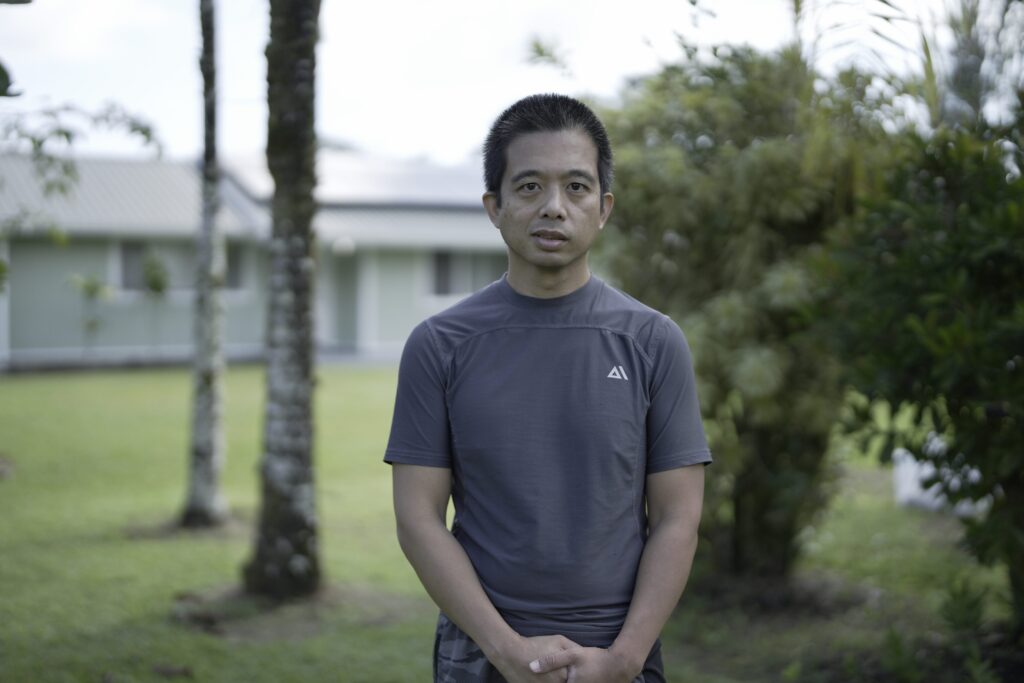
Archie realizes dream of home in Hawaii
Growing up on military bases and serving in the U.S. Navy involved a long list of journeys for Archie Pina. The journey since 2018 from homelessness to home surpasses all of them, he says.
“It’s pretty miraculous actually,” says Archie, who recently purchased a home on the Big Island of Hawaii with his wife, Charity. “I was in a very precarious position.”
He sought help from Homeward Bound after breaking off his film studies at San Francisco Art Institute when his mother became ill. Funding for his education from the G.I. Bill ran out and he lost his housing.
“I found myself hopping from place to place with my backpack,” Archie says, noting he was without income or a credit record. He spent one night in a San Francisco shelter, which he calls “very rough,” and began searching for options.
Coming to our emergency shelter opened a new path. “Everybody was so much more civil and nicer. I felt safer in every way,” he says. Archie recalls being supremely hungry when dinnertime came. “It smelled so good. I actually cried,” he says.
Archie soon moved to New Beginnings Center, where Homeward Bound reserves 12 beds for veterans in a partnership with the U.S. Department of Veterans Affairs.
The connections felt familiar to Archie, who grew up with a stepfather who served in the U.S. Navy. He enlisted himself at Pearl Harbor, becoming a personnel specialist in a four-year deployment that included tours in Asia and the Middle East.
Archie secured a veterans’ housing voucher but, as he began his housing search, he unexpectedly suffered a stroke with “the strongest headache ever.”
After three months in a rehabilitation center, he returned to Homeward Bound and moved to his own apartment just as the pandemic began. Unfortunately, he experienced a second stroke last year and spent two months in acute care.
The pandemic shutdown had negatives, Archie says, but also gave him time to rebuild his credit and deepen his long-distance relationship with Charity, whom he met on Oahu in 2014. They set their sights on home ownership with a VA home loan.
“We both love Hawaii and it feels like home to me,” says Archie, who shared his story via Zoom from his garden. Feeling stronger, he started math and physics classes this year at Hawaii Community College with hopes of becoming an astronomer.
“I wouldn’t have had the capacity…to go forward without the support of Homeward Bound,” says Archie, who fears he might have fallen to drug use or depression. “I want to become so prosperous that I can do something generous one day and tithe back to Homeward Bound.“
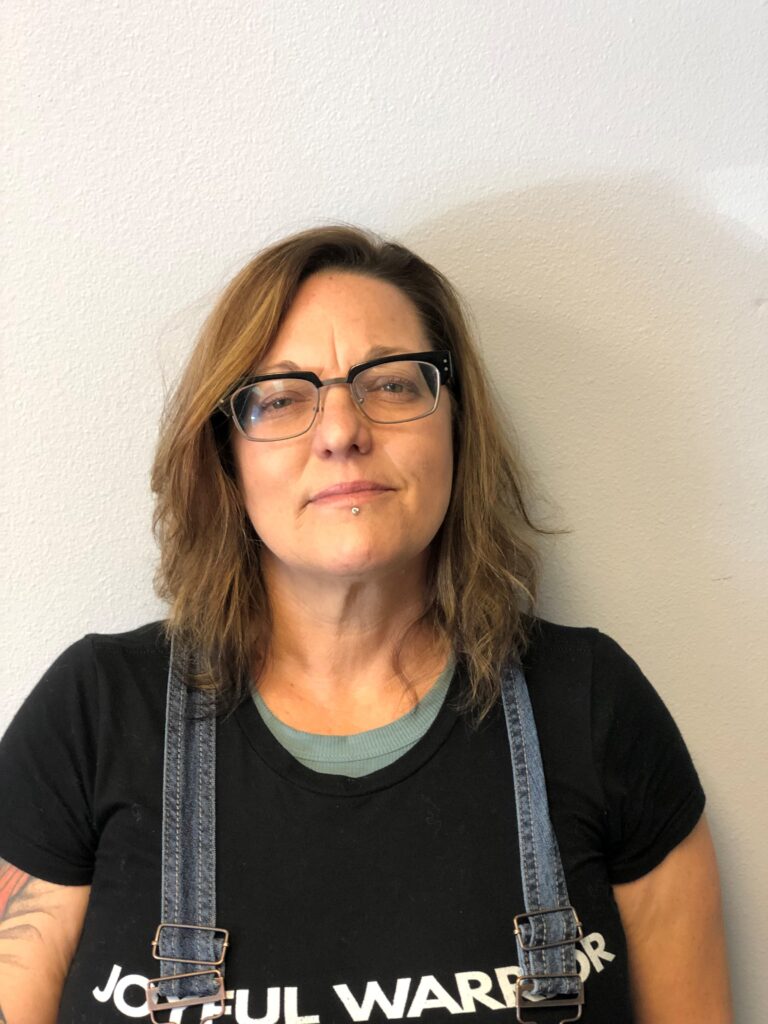
Debra W. once sought help, now offers support to others
Stepping into our emergency shelter in San Rafael took a lot of effort, Debra W. says. “It was fear of the unknown. I had never been to a shelter before and I couldn’t imagine myself there,” she adds.
Now certified as a peer support specialist, Debra has a full-time position with St. Vincent de Paul of Marin and attends her first college class, Introduction to Psychology. She recently moved to a San Rafael apartment, the first time she has had a home to herself.
“I went through a lot at Homeward Bound,” she says. “I don’t think I could have come to this point of my life without the support there.”
In 2018, Debra arrived at our emergency shelter and enrolled in an outpatient program to support recovery from substance dependence. She completed community service hours by helping with kitchen cleanup and our staff connected Debra with help to repair her credit.
She signed up for Fresh Starts Culinary Academy, excited to build on years of work experience in restaurants and catering. Though she’s not working now in the food industry, Debra says her time as a trainee was invaluable.
“I learned that just being on time shows respect, it shows you care,” she says. Debra recalls work at catering events in The Key Room let her earn trust from the chefs and her colleagues that became a fierce motivation.
“Not only did I learn to cook better, but Fresh Starts helped me retrain my brain. It takes time to become a responsible human being,” she says.
Just as the pandemic hit, Debra began working in outreach for Community Action Marin. “We were immediately ‘boots to the ground’ figuring out how to help people,” she says. As a dog owner, Debra made a special effort to connect pet owners without housing to programs that help with animal care.
Her work today focuses on people who have secured housing but need to rebuild other things in their lives.
“Housing is not the end of the story. To have stability with a roof over their head, people need connection, they need activity. I help them with that, whether it’s music, art, reading, recovery, whatever they need to have a better life,” she says.
Enjoying her home with her dog, Belle, is a life she couldn’t imagine four years ago. “I’m actually happy to be alone with myself,” Debra says. “I really feel that I am living a new life.”
Culinary Training Reopens with New Energy
After a pause during the pandemic, Fresh Starts Culinary Academy came back stronger than ever with an updated curriculum and eight new graduates employed since the start of 2022.
Now planning for a class that starts May 16, the core training program has restarted with a new chef instructor and strong employment support.
“We revamped the curriculum to be more structured and technique-driven,” says Chef Instructor Andrew Wild, who arrived in October 2021. The first post-pandemic students began training four weeks later.
He also added a touch of culinary history to the curriculum, like how the chef uniform evolved and where certain techniques originated. “These are things that I have a passion for and they’re fun,” he says.
Chef Andy finds students at Fresh Starts have a broader view of their career than those in his former classes at the Culinary Institute of America.
“Here I’ve found a lot of students who want to do something for the community,” he says.
Along with teaching techniques for everything from eggs to soup to steak in the kitchen, the Fresh Starts training includes professional development skills and support for job placement.
Employment Specialist Sandy McGraw joined the team in February 2020, just in time to begin helping dozens of former students who lost work in the pandemic shutdown.
With classes back in session, she becomes an all-around resource for students seeking employment or needing help with almost anything.
“They are functional, intelligent adults, so I try to make sure I’m not doing too much,” Sandy says. She has coached students looking for apartments, taken them shopping for work shoes, and given pep talks while driving them to job interviews.
Sandy also tends to paperwork to verify student eligibility for CalFresh benefits and works with others who may be supporting a student needing health insurance, housing or legal help.
She savors the days when a student gets excited about polishing their resume, doing mock interviews, finding jobs they want, and finally landing employment. “It’s a big day and we get to share it,” Sandy says.
The Fresh Starts course also includes five classes in financial literacy so students will have tools to handle their new income.
“Having more money doesn’t matter if you don’t know how to manage it,” says LaSaunda Tate, Homeward Bound’s Chief Operations Officer, who teaches that part of the course. Before joining our team, LaSaunda headed SparkPoint Marin, which helps low-income clients build financial resources.
The tight job market offers more choices for graduates, who can show strong core skills, and wages have seen a healthy increase, Sandy says. She calls to check in regularly with graduates and says, “So far they’ve been sharing good news.”
New chef brings love of cooking to our kitchen
Raised in upstate New York, Chef Instructor Andrew Wild discovered global cuisine with the U.S. Navy. His 30 days of “mess duty” resulted in a transfer to cooking for the ship’s officers and honed his appetite to learn more.
His move to the Napa Valley in 1993 opened a wealth of culinary adventures, from working for a brewing company to cooking at The French Laundry with its three Michelin stars.
As a beer enthusiast, Chef Andy has taught classes in beer and food pairing around California. He also has presented at the Slow Food Nation conference and the California Artisan Cheese Festival.
Chef Andy shared his talents on television as culinary production assistant for Chef Emeril Lagasse on “Emeril Green,” managing the output of food and menu set-up for 10 shows.
After 20 years of teaching at Culinary Institute of America in Napa, the chef says he was searching for yet another new direction. He appreciates the small classes at Fresh Starts that allow hands-on teaching, in contrast to the groups of 30 students he taught in Napa.
“I was looking to do something that would make a difference. I feel good about what I’m doing here.”
Despite hours in the Fresh Starts kitchen, Chef Andy says he’s glad to act as family chef as well, making dinners like charred scallions with green soba noodles and tonkatsu chicken. “I just love to cook,” he says.
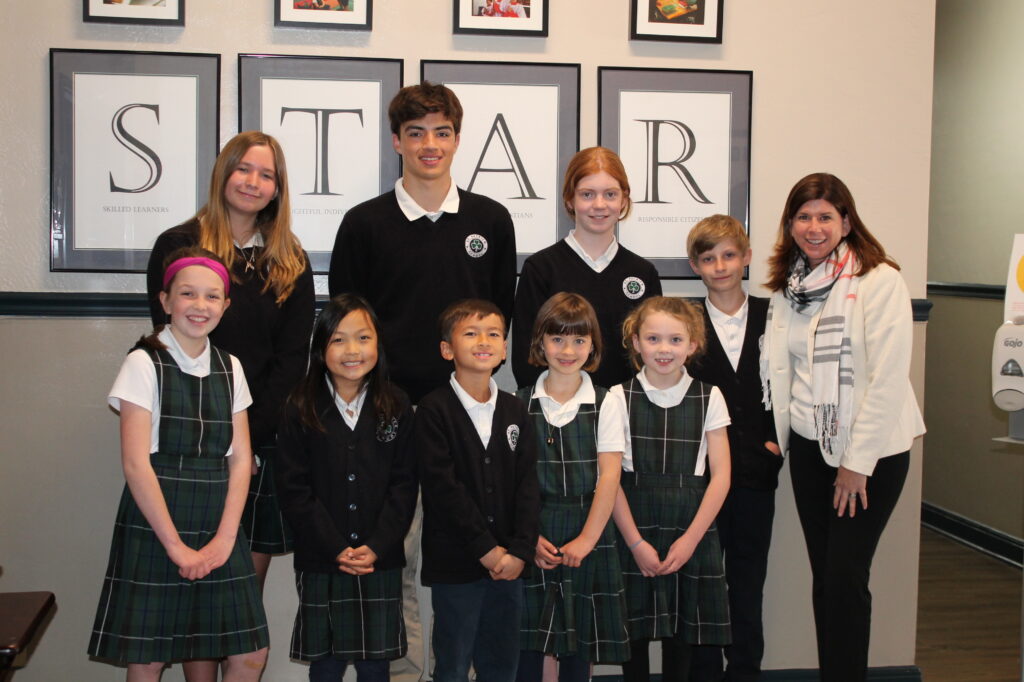
Community Partner Spotlight: St. Patrick School and Parish
Amy Scott recalls her own interest in King Street Senior Housing grew from a Sunday service at St. Patrick Catholic Church, where Monsignor Michael Padazinski mentioned the program’s wish list of household items.
“I purchased something from the list and thought, ‘since they’re right here next to us, what can St. Patrick’s School do for them?’ ” says Amy, whose three children attended the school that has 262 students from kindergarten through eighth grade.
A firm friendship soon sprouted between the school and the King Street program, which Homeward Bound opened in 2018 to provide permanent supportive housing for 12 seniors who had experienced homelessness.
“It’s become a schoolwide project,” says Angela Hadsell, principal at St. Patrick School. “The kids feel very blessed and happy to help. It’s been a great opportunity to learn about our community.”
From the first in a monthly series of lunch deliveries, the partnership grew to include Christmas gifts, festive meals and plans for a future “friendship garden” in the King Street backyard.
Eighth graders organize many of the projects as leaders of the school’s “faith families,” teams of students that include one from each grade. “It’s been a great experience for them to gain leadership skills and to connect to the community at large,” the principal says.
At Christmas, school classes fulfill wish lists provided for each King Street resident and stuff stockings with items like socks, sweets and gift cards. The efforts spill over to students’ families and beyond: the parish Men’s Club put on a steak and seafood barbecue last year and families have contributed dishes for a “meal train” that provides occasional dinners.
“It’s hard to describe the gratitude that I witness from our seniors after all they have received from the St. Patrick community,” says Micha Berman, program coordinator at King Street Senior Housing. “They particularly like seeing the kids and it brings a whole new element of life having the young people come into the house as volunteers.”
King Street made its own contribution to the school community with a front-yard butterfly garden started by Bob H., one of the first residents, that became an attraction for neighbors and students to watch. Native plants feed the larvae for Monarch butterflies that are active in all stages of life.
“They’ve fit into the community beautifully,” Amy says, recalling that the building occupied by the program was an empty former convent. “After being an unused building for so long, it’s turned into a wonderful annex for the school and church.”
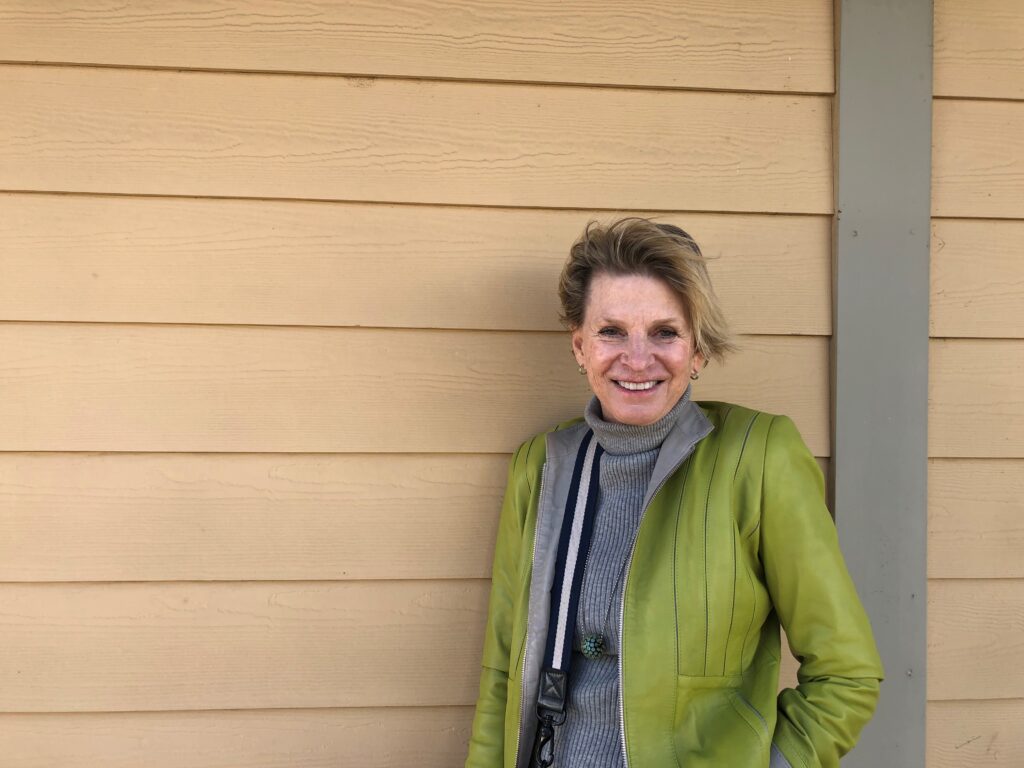
Volunteer Spotlight – Sara Henry
As a substitute teacher and art teacher for junior high, Sara Henry says she got a mixed welcome. Now she’s feeling appreciated with the excitement and happy greetings from participants in her art workshops at Warner Creek Senior Housing.
“I love them all. They’re like my little family,” she says. “We really have fun with it and I can tell they enjoy it, which is what feeds me.”
A textile designer for 30 years, the Novato resident also taught life skills at Timothy Murphy School for Boys for seven years. Her first art workshop for seniors at the assisted living community where her mother lived.
“I thought, as a volunteer, that’s my forte – art!” says Sara, who graduated from Fresno State University with an art history degree.
She approached Homeward Bound several years ago to volunteer and connected quickly with Monina Hamilton, services coordinator at the 60-resident Warner Creek site.
Sara has led several workshops per year ever since, bringing activities based on holidays or the seasons. One of her favorites was creating Easter eggs colored by dipping them in swirled nail polish for a lustrous, sparkly shine.
The onset of the pandemic forced a long pause for in-person projects, but she helped with door-to-door meal delivery and even assembled an art kit in a bag for those who wanted a diversion. Her financial gifts underwrote holiday meals during the shutdown.
“Sara has been a beacon of laughter, joy, and light with her unwavering generosity,” says Monina Hamilton, services coordinator at Warner Creek Senior Housing. “Sara has a magical spirit. She’s an integral part of the Warner Creek family.”
Her fans gratefully welcomed her back for in-person art in late 2021. The group created tabletop trees decorated with fabrics and ornaments for the winter holidays.
“I get a lot of my ideas online. I choose carefully to find something that hopefully everyone can tackle and not get frustrated, whether they might have limited hand mobility or whatever,” she says.
Happy to plan ahead for 2022, Sara foresees visits for Easter, Mother’s Day, July 4 and beyond. “During Covid, we all were sad that the creative collective was missing,” she says.
View full newsletter
This pdf is not accessible. For help reading it, please scroll up the page or contact Maura Thurman.
Next
Fall/Winter 2022
